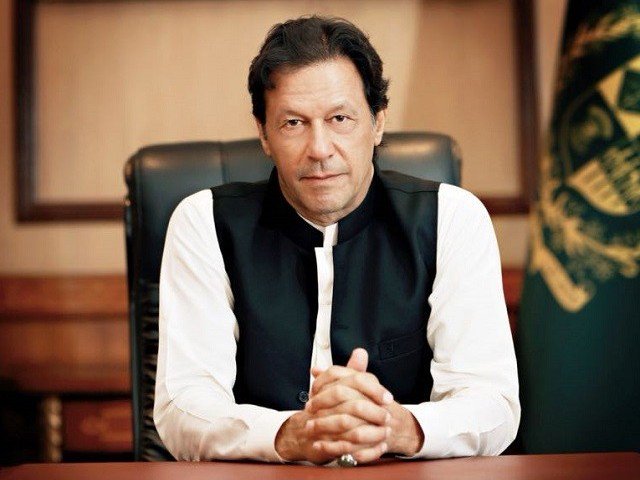
Or so said Prime Minister Imran Khan in a bizarre address to a bewildered nation at a bewitching hour on a Budget evening. It was a declaration of war. Again. What do we make of these surreal happenings when the system is giving off SOS smoke signals?
Let’s take stock:
PTI is full of smart people, right? I mean, this is the party that has done what no one could have imagined happening in Pakistan. Almost single-handedly, PTI gatecrashed the ‘Two-Party’ closed club, beat both parties with an electoral club, and flung them out of power with the contempt that many felt they richly deserved. This is, after all, the same party that changed the suffocating brand of traditional politics in Pakistan; that introduced energy, zest and pizazz in campaign rallies; that gave voice to a huge chunk of the urban middle class and youth; that contested polls from across the length and breadth of the country thereby rightfully claiming support across all provinces and regions; and that forced the burning issue of corruption to become a rallying cry for citizens sick and tired of enduring an unaccountable elite.
PTI is full of smart people, right? I mean, this is the party that attracted to its folds a rainbow coalition ranging from doctors, architects, bankers, dentists, journalists to industrialists, feudals, allamas and pirs. PTI was an ideology that became a party that became a movement that became a phenomenon. Who else but very smart people could have managed to achieve all this?
So where are all the smart people when PTI needs them?
It needs them because it is in trouble. It is in trouble because it is buckling under pressure. It is buckling under pressure because it miscalculated the extent of Pakistan’s problems and it miscalculated its ability to solve them. This miscalculation happened because PTI internalised a formula for success that missed a crucial ingredient. Here’s how:
Things were comfortably simple for the party till the October 2011 Lahore rally. Before this breakout jalsa, the party and its narrative revolved around Imran Khan as the clean guy supported by a loyal band of like-minded men and women who formed the core of PTI. After the Minar-e-Pakistan rally, every electable and his chacha wanted to hook his wagon to PTI. The party opened its arms to this horde of fickle and not-so-fickle electables who had sniffed success and were eagerly hoofing across to the PTI stables.
Redemption now had a last name: Khan.
Redemption however, needed a new narrative because, you see, the original narrative of PTI as the ‘neat and clean party’ lay trampled under the galloping hoofs of the new electable horde. Hence was stitched together — hurriedly if one may add — the new post-Lahore rally narrative and it went something like this:
Yes PTI had accepted all kinds of turncoats into its fold; yes PTI had embraced all types of undesirable vote-getters with dubious reputations; and yes PTI had scarfed all shades of un-fragranced ruffians but what mattered ultimately was not these turncoats and these dubious vote-getters and these ruffians but the Great Leader. If the leader was honest and well-meaning and sincere — which he was, said the narrative — then it mattered not if his team swelled with such undesirables.
The narrative then philosophised: these ruffians were seat-winners and their seats were needed for the Great Leader to ascend to the throne of Pakistan. The value of these electables lay in their providing the electoral numbers for Khan’s ascension and to be his parliamentary fodder for attacks on enemies, who by the way, needed to be crushed mercilessly till there was nothing left of them except anguished wails across a lonely and desolate landscape.
But then power happened. And the new narrative’s missing ingredient popped out like an annoying pimple: governance.
The electables gave Khan the numbers to ascend the throne. Khan was still honest and sincere as he had always been. The problems though remained. In fact, they mounted in scale and complexity while the economy went into a tailspin. Ten months into PTI’s government, the narrative that catapulted it into power lies in ruins. But the problem is less the death of this superficial narrative and more the inability — or unwillingness — to admit that PTI’s solutions to Pakistan’s problems were either too simplistic, or too naïve or just plain wrong.
It takes a big person to admit mistakes. It takes even a bigger person to rectify these mistakes and chart a new course. PTI is doing itself no favour by refusing to acknowledge its shortcomings. It is doing itself even less of a favour by blaming others for its problems. The missing ingredient is seeping inside the party’s veins like a deadly poison.
A series of unfortunate events and self-inflicted wounds have led PTI to waste precious time, change the economic team and present a budget whose IMF-dictated targets look almost impossible to achieve. This expected failure of the government to reach tax collection targets could force PTI to present mini-budgets in the next quarter or two. These budgets would invariably translate into more taxation and more economic pain. Yet at the same time we still do not know what plan the government has for structural reforms aimed at fixing the core problems of the economy — of even if it has a plan at all.
Which brings us to our original question: where are all the smart people in PTI? Do they not know PTI needs to figure a way out of this mess, translate this into practical policy and explain this policy to an increasingly disillusioned citizenry? Do these smart PTI people — wherever they might be — realise their leadership is defocused, de-tracked and distracted? Do they have what it takes to explain to the party high command that their party is losing support, losing confidence and — most dangerously — losing the plot?
If the Prime Minister believes, as he obviously does, that his obsession to go after his political opponents should be his key priority, then he seriously needs to consult the smart people in PTI.
Of course to do this, he needs to find them first.
Published in The Express Tribune, June 16th, 2019.
Like Opinion & Editorial on Facebook, follow @ETOpEd on Twitter to receive all updates on all our daily pieces.

1729161093-0/liam-(4)1729161093-0-165x106.webp)










COMMENTS (3)
Comments are moderated and generally will be posted if they are on-topic and not abusive.
For more information, please see our Comments FAQ